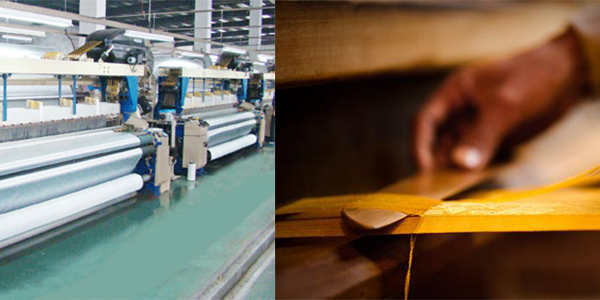Silk Technology Engineering
[one_half][ads1][/one_half]Silk technology is one of the most important branch in the textile industry. Quite obviously silk clothes are the costliest in India, the technology used in the silk industry is highly challenging and demanding.Silk extraction process is done from silk worms which becomes an important part of the textile industry. There are 2 stages in that; Extracting the raw material of silk from the silk worms and then weaving them into fabrics.Silk fabrics are
mostly worn on occasions especially in India. Silk is also a natural protein fiber which means that it has to be cultivated from silk worms which are in turn grown on mulberry leaves. After the completion of silk technology , the engineers go on to work into the textile industry, fashion and apparel industry.
Eligibility:
To appear in any of the entrance examination of undergraduate engineering courses, it becomes compulsory that the student must have passed the higher secondary school certificate examinations with the subjects specialized in Physics, Chemistry & Maths. However some courses demand the need of Biology also which may or may not be considered. The percentage requirements are conditional and they vary according to the university or college sometimes even depending on the state which you apply.
Duration:
Generally, any Bachelor of Engineering in India will span a duration of 4 full academic years which will include 8 semesters i.e; 2 semesters each year at the end of which a university theory cum practical examination for the respective subjects will be conducted. At the end of the final year a final project becomes compulsory, internships and mini projects which are to be done by the student vary from one university to the other. As far as the studying of subjects are concerned, it depends on the syllabus of each university that how much main subjects it allots per semester but a minimum of five subjects is expected to be written as theory examination conducted at the end of every semester.
Admission Process:
Option 1:
Merit seats- admission through Common Entrance Test conducted by respective state examination board/ college / university
Option 2 :
Payment seats offered by the respective Colleges / Universities.
The above are the options through which an engineering admission could be done, you will have to select the most appropriate college/university in which you want to get into and then obtain the college details, relevant contact phone number and visit the institution for further enquirers.
Fees:
Each university has its own fees structure though, we would like to present to you a generalized scenario. Private universities will cost you around 150,000 to 300,000 (1.5 to 3 lakh) rupees per student per year . Public university on an average will cost between 75,000 to 150,000 rupees per student per year. Living expenses will cost you depending on the location of the university like in cities, it will cost you more and your style of living. Generally, this expenditure may cost you around Rs.1 lac excluding your tuition fees.
Syllabus & Subjects Studied:
- Fiber Science.
- Yarn Structure & Properties.
- Fabric manufacture and fabric structure.
- Textile testing.
- Dyeing.
Best College/Universities:
- Bihar Institute of Silk and Textiles, Bihar.
- Government Sri Krishnarajendra Silver Jubilee Technological Institute, Bangalore.
- Uttar Pradesh Technical University, Lucknow.
- Visvesvaraya Technological University, Belgium.
Jobs after completing this course:
Sector / Industry
- Mysore Silk Factory.
- Bombay Dyeing.
- Arvind Mills Ltd.
- Lakshmi Mills.
Careers after completing this course:
- Researcher.
- Quality Control Supervisor.
- Medical Textiles Engineer.
- Process Engineer.
Courses after completing this course:
- Masters Degree is possible in Silk Technology
- Research & Development options are also available.





